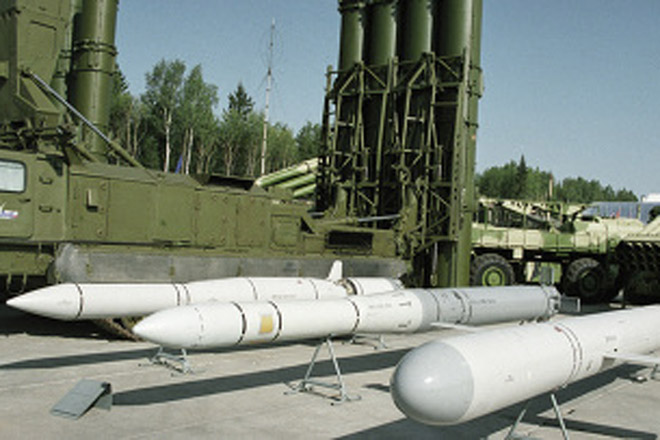Azerbaijan, Baku, October 15 / Trend E. Tariverdiyeva /
Despite a new Strategic Arms Reduction Treaty does not include anti-missile defense system, Russia and the USA realize interdependency of these problems, experts said.
"Anti-missile defense system is not part of the talks on Strategic Arms Reduction Treaty despite Russia's attempts to unite two these issues. No wonder that Obama's decision to refuse from the plans of anti-missile defense system in Central Europe was commented as an action to please Russia to get support for a new Strategic Arms Reduction Treaty," European expert on security, Beata Kviatek-Simanska, said.
Russia and the United States have rather advanced in discussion of a new Strategic Arms Reduction Treaty and agreed to make every effort to complete work on schedule, Russian Foreign Minister Sergey Lavrov said at a press conference in Moscow on Tuesday after the talks with U.S. Secretary of State Hillary Clinton , RIA Novosti reported.
He stressed that the parties have discussed the issues to be agreed and requiring further study. They agreed to continue making efforts to complete this work on schedule, i.e, in December 2009.
The United States familiarized Russia with the concept of a new assessment of threats posed by Iran, and looks forward to cooperate with Moscow on anti-missile defense system, U.S. Secretary of State, Hillary Clinton, said, RIA Novosti reported.
Simanska said that Hilary Clinton's visit to Moscow can be considered as another attempt to find common ground with Russia on a new Strategic Arms Reduction Treaty.
Anti-missile defense system is not part of the talks on Strategic Arms Reduction Treaty. But Russia tried to unite both issues saying that U.S plans to place radar in Czechia and rocket-interceptors in Poland undermine efforts on nuclear disarmament, professor, specialist on international relations of the University of Groningen (the Netherlands), Beata Kviatek-Simanska, told Trend via E-mail.
In an interview with Vesti.Ru, Head of the Department on Non-Proliferation and Arms Control of the Institute of World Economy and International Relations, Alexander Pikayev, expressed his view that anti-missile defense system is not indicated in the negotiations on START. But the parties agreed that the interdependence of problems with START and anti-missile defense system must be included in the contract, he said.
He said that there is no direct link between deployment of U.S. anti-missile defense system and conclusion of this treaty. "Though there is informal link. It is military, political and diplomatic. Implementation of the agreement, let alone conclusion of any new agreements on nuclear disarmament, is impossible without solving this problem. It will also depend on what Americans will do," Pikayev said.
'Considerable progress' implies finding common ground on issues related to verification, as well as what kind of weapons systems should be included in a new Strategic Arms Reduction Treaty, U.S expert on security Yannis Stivachtis said.
The reason simply is that the existence of any missile defense system, according to Russia, goes against the logic and principles of deterrence and therefore Russia is against any policy or means that would undermine deterrence, Director of the International Studies Program at Virginia Tech (USA), Stivachtis, told Trend via E-mail.
The Russian Government has been adamant and clear on this issue, expert said.
Hillary Clinton perhaps meant finding a way to protect vital interests related to U.S and international security with Russia's collaboration, he said.
According to observers, the parties will have to agree on some details of a new contract before START-1 expires in December 2009.
Simanska said that earlier Russian President Dmitry Medvedev has proposed to extend the treaty to limit strategic delivery vehicles, such as intercontinental ballistic missiles, ballistic missiles launched from submarines and heavy bombers.
The preliminary agreement at a meeting between Barack Obama and Dmitry Medvedev in Moscow in July 2009 included significant reduction of deployed strategic arsenals up to 1,500-1,675 warheads and 500-1,100 of delivery vehicles.
Expert said that other "technical" problems of the negotiations on START cover so-called rules to count warheads. "Experience with the work on START-1 demonstrated that the figures stated in the agreement, and the ones of actually deployed warheads differ," Simanska said.
These technical issues do not have decisive significance to conclude the agreement. Nevertheless, they must be discussed and agreed, expert said.
She said that anti-missile defense system's major and the only problem is effectiveness and expenses due to placement of anti-missile defense system. "Taking it into account, rocket-interceptors of a new anti-missile defense system are likely to be placed at mobile launchers. They seem to be cheaper than fixed ones," Simanska said.
Stivachtis does not think that "collaborate closely on missile defense" means the introduction of a new and more technologically developed missile defense system.
Pikayev said that a new Strategic Arms Reduction Treaty is unlikely to be signed by expiry of the old one, i.e. by December. As to anti-missile defense system, expert doubts that the U.S.A. knows where this system will appear.
Do you have any feedback? Contact our journalist at [email protected]






